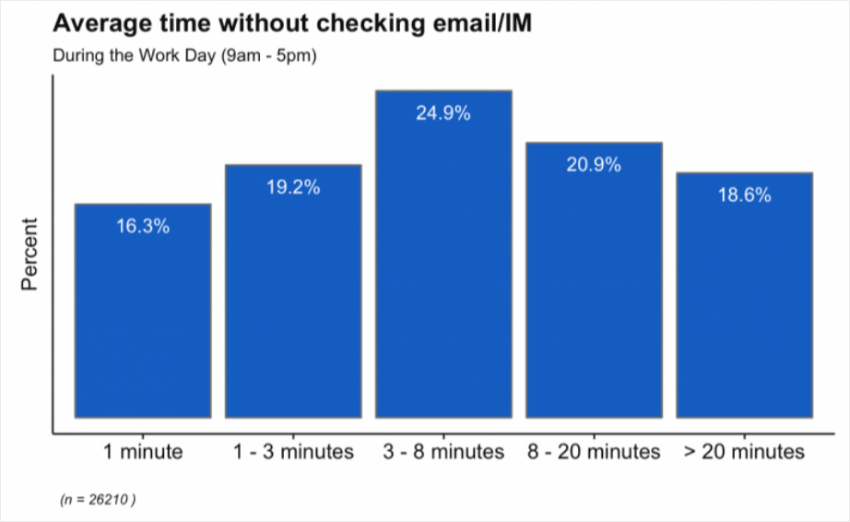Life today can be pretty busy. There are back-to-back-to-back meetings at work, and the commuting time it takes to get there and back. You’re chauffeuring kids back and forth to sports practice, games, matches, and playdates. Then, you’ve got to squeeze in grocery shopping, housework and maintenance, and hopefully some down time for fun. And that was even before a public health crisis made all of that problematic by forcing most of us to work from home.
It’s not just at work that we’re overscheduled. Making time for everyone is exhausting and is taking up more time than ever before. It’s no wonder people are starting to escape large cities for smaller towns, changing jobs for something less demanding, or hiring outside help to get it all done.
Setting clear boundaries for our time feels impossible, and it’s making us feel more annoyed with every passing day. How can we be better at setting boundaries and protect our time, so we’re more productive and happier overall?
Block Out Time
The first step is to reserve time on your schedule. Look for times when you can’t meet with colleagues or don’t want to meet with them, like before or after a specific time. Your goal is to create space on your schedule, so the people around you will see that you’re unavailable.
Consider doing that for the first couple of hours at work every day, so you have uninterrupted time to work on tasks you need to focus on. This seems like a simple idea, but it’s essential for today’s workers.
Why?
According to this study by RescueTime, the time management app, it’s because we barely get any dedicated work time at all. They found that 40% of workers never get a full 30 minutes of focused time.
At home, you can set aside one evening a week for family time and turn down anything else for those evenings. Spending time with family is important, but so is time away from work.
Get Organized
The second step to protecting your time is to get organized with your schedule, especially at work.
- Book work meetings with clear, focused agendas. Explain it in the meeting request so people can decide whether they need to accept it. There’s nothing like being able to decline a meeting before you waste your time by attending.
- When you get to the meeting, state your intention for it and its timing up front. Pay attention to the pacing and keep it on track with time warnings as you go. Pacing is critical if you want them to end on time.
Learn when you’re most productive and then schedule work or play during those times. For example, you might work better in the afternoons and find working out in the mornings useless. We do this when scheduling outings with small kids, who often need naps in the afternoon, so why don’t we do the same for ourselves?
Turn Off the Technology
Smartphones come with all the notifications turned on by default. You’ll get a ping or buzz with every new email, text, or happening in any of the apps on your phone. And like Pavlov’s dogs, we look at them all.
At work, nearly 36% of us check email and messaging tools every three minutes or less, and 18.6% of us can only go 20 minutes or more without checking our communication tools.

Credit: RescueTime
We’re under such pressure to react immediately at work that we keep checking our communication channels instead of working. Refocusing after an interruption can take more than 20 minutes each time, so it’s easy to see why technology can be such a problem.
To eliminate distractions and protect your time better, turn off the notifications you don’t need to see. For example, my smartphone only pings me for texts and phone calls. Everything else can wait when I have the time to look. Better yet, turn off your phone and laptop when you don’t want to be disturbed. We managed just fine in the past when we weren’t reachable 24/7, so you’ll be fine for a few hours.
Learn to Say No
Another vital skill is to learn how to say no and turn people down. It can be hard to say, as we don’t want to let people down. But if you want to safeguard your time for your life and work, you have to learn.
- If you get a meeting request that doesn’t work for you, suggest another time instead.
- If someone stops by your desk to chat, ask them to come by another time.
- If your home office has a door, close it and tell your family that when it’s closed, you’re not to be disturbed.
Will Blunt, founder of publishing company Sidekick Digital, discovered that many requests he gets as a leader don’t need his attention. The secret to more productive days, he told RescueTime, is “having the willpower to say no.”
Learning how to set and follow time boundaries will help us at work, but they’re useful at home too. You’ll get more enjoyment out of your fun time and be more productive at work. Use these strategies to protect your time and make life a little more comfortable all around. You’ll be happier.


